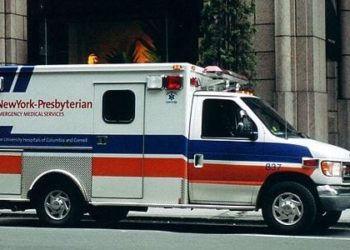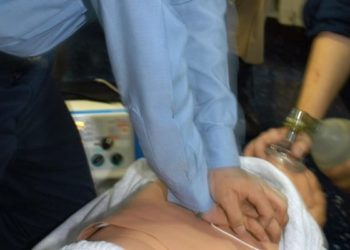Warning symptoms before cardiac arrest associated with improved survival
1. From a prospective cohort study, half of all sudden cardiac arrests (SCA) are associated with prodromal symptoms, most often chest pain in men and dyspnea in women, in the minutes, hours, days, and weeks prior.
2. Emergency 911 call in response to symptoms occurred in about 20% of symptomatic patients and was associated with previous history of heart disease, higher incidence of SCA being witnessed and higher incidence of CPR being started in the field.
Evidence Rating Level: 2 (Good)
Study Rundown: Sudden cardiac arrest (SCA), the unexpected loss of pulse or rapid collapse, accounts for half of cardiovascular deaths. The authors of this study followed the Oregon Sudden Unexpected Death Study (SUDS) cohort prospectively to determine if prodromal symptoms were present in the 4 weeks prior to SCA. For both survivors and non-survivors, symptoms preceded SCA in about half of patients. The demographics, timing of SCA and comorbidities were similar between patients regardless of presence of symptoms. Chest pain was the most common prodromal symptom preceding SCA by less than an hour, less than a day, less than a week and less than 1 month. Emergency 911 call was made prior to less than 10% of SCA and was more frequent if SCA was witnessed, in people with a history of heart disease, and was associated with greater chance that CPR was initiated in the field and for the initial rhythm to be shockable. The major limitations of this study were the lack of symptom data on much of the cohort and the imputations made for missing data points. Overall, this study suggests that prodromal symptoms precede half of all out-of-hospital SCA, which may provide sufficient time for response prior to the impending SCA and allow for improvement in SCA survival.
Click to read the study published today in the Annals of Internal Medicine
Relevant Reading: Association between prodromal symptoms, exercise, and sudden cardiac arrest: National survey of sudden cardiac arrest survivors
In-Depth [prospective cohort]: This study consisted of all 1099 cases of SCA occurring in 35 to 65 year old men and women in the Portland metropolitan area between 2002 and 2012 as part of the Oregon SUDS prospective cohort study on out-of-hospital SCA. Of these people, only 114 (10%) survived. Symptoms were not available for assessment in 25% of non-survivors and 16% of survivors, with 839 patients (743 non-survivors and 98 survivors) who had symptom data available for assessment. Symptoms preceded SCA in 383 (52%) non-survivors and 47 (49%) survivors. Chest pain was the most common prodromal symptom and was present in 46% of patients overall. Of those who had chest pain, 28% had existing coronary heart disease. Women experienced dyspnea most frequently, whereas men experienced chest pain (p < 0.001). Symptoms resulted in a 911 call in 55 (14%) non-survivors and 26 (55%) survivors. Witnesses calling 911 in response to prodromal symptoms to SCA was associated with more bystander CPR (p = 0.001), higher rate of shockable rhythm (p = 0.02) and improved survival to hospital discharge (32.1% v. 6.0%, p < 0.001).
Image: CC/Wiki
©2015 2 Minute Medicine, Inc. All rights reserved. No works may be reproduced without expressed written consent from 2 Minute Medicine, Inc. Inquire about licensing here. No article should be construed as medical advice and is not intended as such by the authors or by 2 Minute Medicine, Inc.









